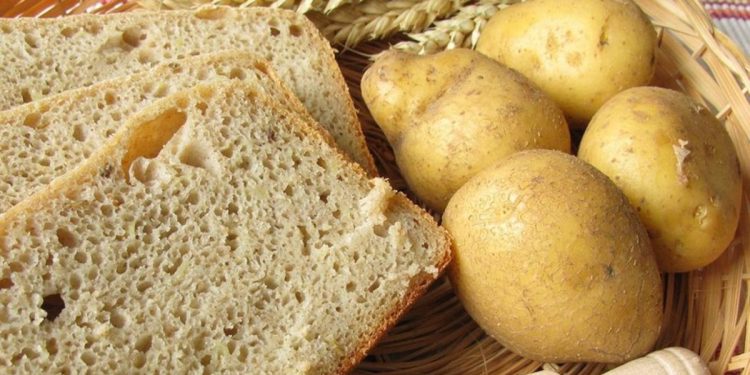#potatopulp #steamedwheatbread #stalingproperties #nutritionalimprovements #byproductutilization #sustainableagriculture#resourcemanagement #circulareconomy #foodinnovation
Steamed bread is a popular staple in many cultures, known for its soft texture and long shelf life. However, it often lacks the nutritional value of whole grains. Through a recent study, researchers have discovered that incorporating potato pulp into the bread-making process can address these concerns, leading to a revolution in the world of steamed bread.
According to a study conducted by the Department of Food Science and Engineering at a renowned university, the addition of potato pulp to steamed wheat bread had significant positive effects on both its staling and nutritional properties. The researchers found that potato pulp acted as a natural anti-staling agent, effectively delaying the staling process and prolonging the bread’s freshness. This breakthrough could have substantial implications for farmers, agronomists, agricultural engineers, farm owners, and scientists in the agricultural industry.
Moreover, the incorporation of potato pulp in steamed bread also resulted in remarkable nutritional improvements. Potato pulp, being a byproduct of the potato processing industry, is rich in dietary fiber, vitamins, and minerals. When added to the bread dough, it contributed to the overall nutritional value of the final product, making it a healthier choice for consumers. The study revealed a significant increase in the fiber content and essential nutrients, such as potassium and vitamin C, in the potato pulp-enriched steamed bread.
The implications of this research are noteworthy for both the agricultural and food industries. The utilization of potato pulp, which was previously considered waste, not only adds value to the byproduct but also presents an opportunity for sustainable and efficient resource management. Farmers can collaborate with potato processing facilities to acquire potato pulp and integrate it into their bread-making processes, creating an additional revenue stream while reducing waste.
Furthermore, agronomists and agricultural engineers can explore the potential of potato pulp as a natural anti-staling agent in other baked goods or investigate its application in animal feed formulations, contributing to a more circular and sustainable agricultural system. The scientific community can continue to build upon these findings, conducting further research to optimize the incorporation of potato pulp in bread-making and exploring its potential benefits beyond steamed bread.
The use of potato pulp in steamed wheat bread holds tremendous promise in revolutionizing the traditional bread-making process. By enhancing the staling properties and nutritional value of steamed bread, potato pulp offers a win-win solution for both consumers and the agricultural industry. This breakthrough highlights the importance of innovation and sustainability in agriculture, demonstrating how seemingly insignificant byproducts can be transformed into valuable resources.







